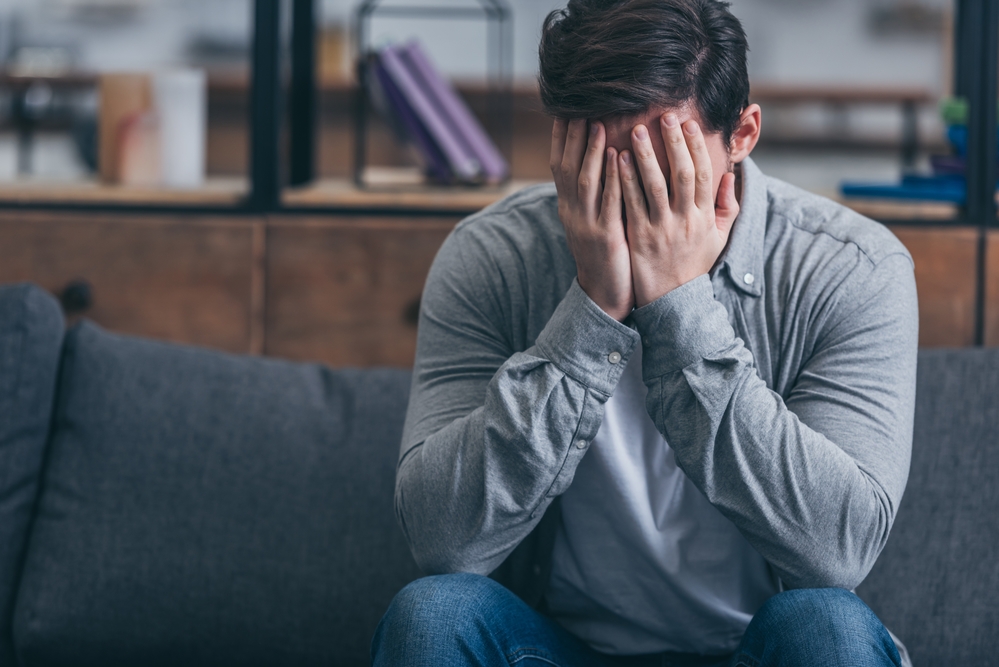We all get anxious or nervous from time to time—it’s normal to feel this way if you’re e.g. having trouble at work or have other problems in your life that need solving. A lot of situations can leave you jittery and nervous for days, but what’s important is to recognize if these feelings keep on returning on a daily basis and never go away.
For some, anxiety becomes so frequent or forceful, that it eventually takes over their lives. That’s when it stops being something normal, and moves on to being something a bit more serious—generalized anxiety disorder (GAD).
Sadly, there is no official blood test or brain scan that can diagnose you with GAD, but there are signs that may point to trouble and that you can pay attention to.
6 Signs That You Have Generalized Anxiety Disorder
GAD is the most common type of anxiety disorder, often accompanied by the following symptoms:
- You constantly feel worried. The main sign of generalized anxiety disorder (which is the most common one) is excessive worry about everyday things, both big and small. This includes being anxious throughout almost the entire week, feeling fatigued, and having anxious thoughts interfere with your daily life.
- Your body is under tension, too. In most cases, it’s not only your mind that will suffer from anxiety but also your body. Symptoms will differ from one person to another, but what you might feel is muscle tension (e.g. clenching your jaw or flexing muscles throughout your entire body), chronic indigestion (are you familiar with the irritable bowel syndrome?), nausea, and even heart palpitations. You might also have trouble falling asleep or staying asleep.
- You sometimes have panic attacks. Panic attacks are terrifying—there are no two ways about it. Aside from the crippling fear and feeling helpless, you may experience breathing problems, racing heart, sweating, weakness, chest pain, etc. Usually, people who often experience panic attacks will be diagnosed with a panic disorder, as well.
- You have problems focusing. Anxiety brings about a lot of negative feelings, and it can also affect your ability to focus. If you’re suffering from GAD, you might find yourself having trouble focusing on the most simple tasks and failing to complete them.
- You doubt yourself more than you should. Second-guessing and constant self-doubt are both common features of anxiety disorders. These “doubt attacks” usually occur when you have a question that can’t be answered. People with anxiety disorders can also be extremely self-conscious, which can make it difficult for them to advance at work or meet new people.
- You are prone to negative thinking. Those suffering from generalized anxiety disorder almost always automatically anticipate a negative outcome to everything—personal or professional life, health, or financial matters. If your thoughts are negative at all times, then the problem may be an anxiety problem.
How Can You Cope with GAD?
Unfortunately, your troubles don’t stop when you recognize that you suffer from generalized anxiety disorder. Once you do that, you need to learn how to cope with your feelings and thoughts.
Some people choose to do this on their own, by accepting that they cannot control everything, trying to maintain a positive attitude, and learning what triggers their anxiety. Exercising daily helps, as well, and so does eating well-balanced meals and getting enough sleep. If you have GAD, don’t be afraid to:
- Count to 10 and take deep breaths when you’re feeling stressed,
- Take a time-out by listening to some music, doing yoga, or meditating,
- Talk to your friends or family about how you’re feeling.
It’s important to realize what it is that can help you relax and avoid further problems that your anxiety may cause. Don’t be afraid to try out different methods and see what works best. If you believe that anxiety is getting the best of you and you can’t deal with it on your own, then don’t hesitate to seek professional help.
Using Ketamine for Generalized Anxiety Disorder
Some patients with GAD and other anxiety disorders have been reported to feel better with just a single infusion of low dose ketamine.
In a recent study, ketamine was administered to 12 patients with GAD too difficult to treat and the results were more than beneficial for those patients. The benefits lasted for up to seven days, while higher doses of ketamine ended up with longer-lasting benefits.
Dr. Best from the Neuroscience Center developed a technique that can increase the effectiveness of ketamine infusions. What Dr. Best and his team do is administer infusions during brain stimulation treatment, which leads to each subsequent treatment boosting the effects of the previous ones. This way, some patients get to enjoy an anxiety-free life for up to seven years.
If you want to schedule your own treatment at the Neuroscience Center, don’t hesitate to contact us:
Phone: 847-236-9310
Email: [email protected]








